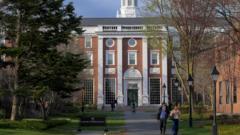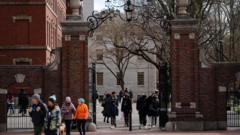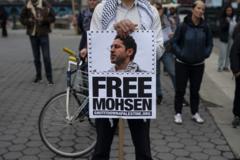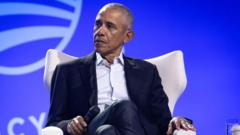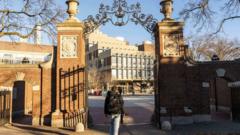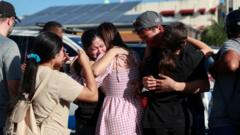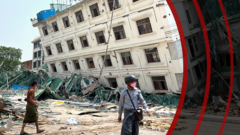**As time passes, the diminishing number of Auschwitz survivors delivers a powerful reminder of the Holocaust's horrors and the urgent need for vigilance against intolerance.**
**Voices of Auschwitz Survivors Echo as History’s Memory Fades**
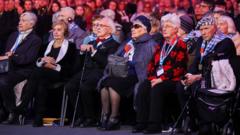
**Voices of Auschwitz Survivors Echo as History’s Memory Fades**
**Survivors come together with world leaders to commemorate 80 years since Auschwitz's liberation, highlighting the importance of preserving history.**
As the world marks 80 years since the liberation of Auschwitz-Birkenau, the poignant voices of surviving witnesses stand as a testament to a dark chapter in history. During a solemn event held on Monday, 56 survivors shared their harrowing stories alongside global dignitaries, emphasizing the urgent need to remember the atrocities of the Holocaust.
Leon Weintraub, the oldest survivor at 99, recounted the stripping away of humanity experienced within the camp's walls, while Tova Friedman, who was just five years old at the time of the genocide, poignantly shared her memories of clutching her mother’s hand amidst unimaginable horror. Their testimonies echo a broader warning against intolerance, a sentiment underscored as antisemitism resurfaces globally.
The Nazis brutally murdered approximately 1.1 million individuals at Auschwitz between 1941 and 1945, including nearly a million Jews. The extermination camp, the largest of its kind, remains a haunting symbol of inhumanity and genocide. World leaders, including Polish President Andrzej Duda and King Charles III, gathered to reaffirm their commitment to preserving the memory of those lost.
Under a vast white tent at Auschwitz, Piotr Cywinski, director of the Auschwitz museum, highlighted the necessity of memory in shaping our understanding of history, cautioning against the dire consequences of forgetting. As the event coincided with International Holocaust Memorial Day, memorialization took center stage, with participants donning blue-and-white striped scarves reminiscent of prisoner uniforms.
The leaders’ pledges to guard memory took on special urgency amid rising Holocaust denial and the resurgence of hate globally. In New York, UN Secretary General António Guterres echoed these sentiments, labeling remembrance a moral obligation and a call to action.
King Charles III's historic visit marked a significant moment, as he became the first reigning British monarch to pay tribute at Auschwitz. His emotional visit included laying a wreath in remembrance of the victims and reflecting on the importance of remembering the past's evils to foster a compassionate future.
Survivors like 94-year-old Mala Tribich provided insight into the lasting impacts of hatred, cautioning against despotism’s influence on younger generations. With the presence of historical witnesses dwindling, calls for safeguarding the legacy and truth of the Holocaust grow increasingly urgent.
As we remember the survivors and their powerful stories, the commitment to learning from the past remains vital for humanity.



